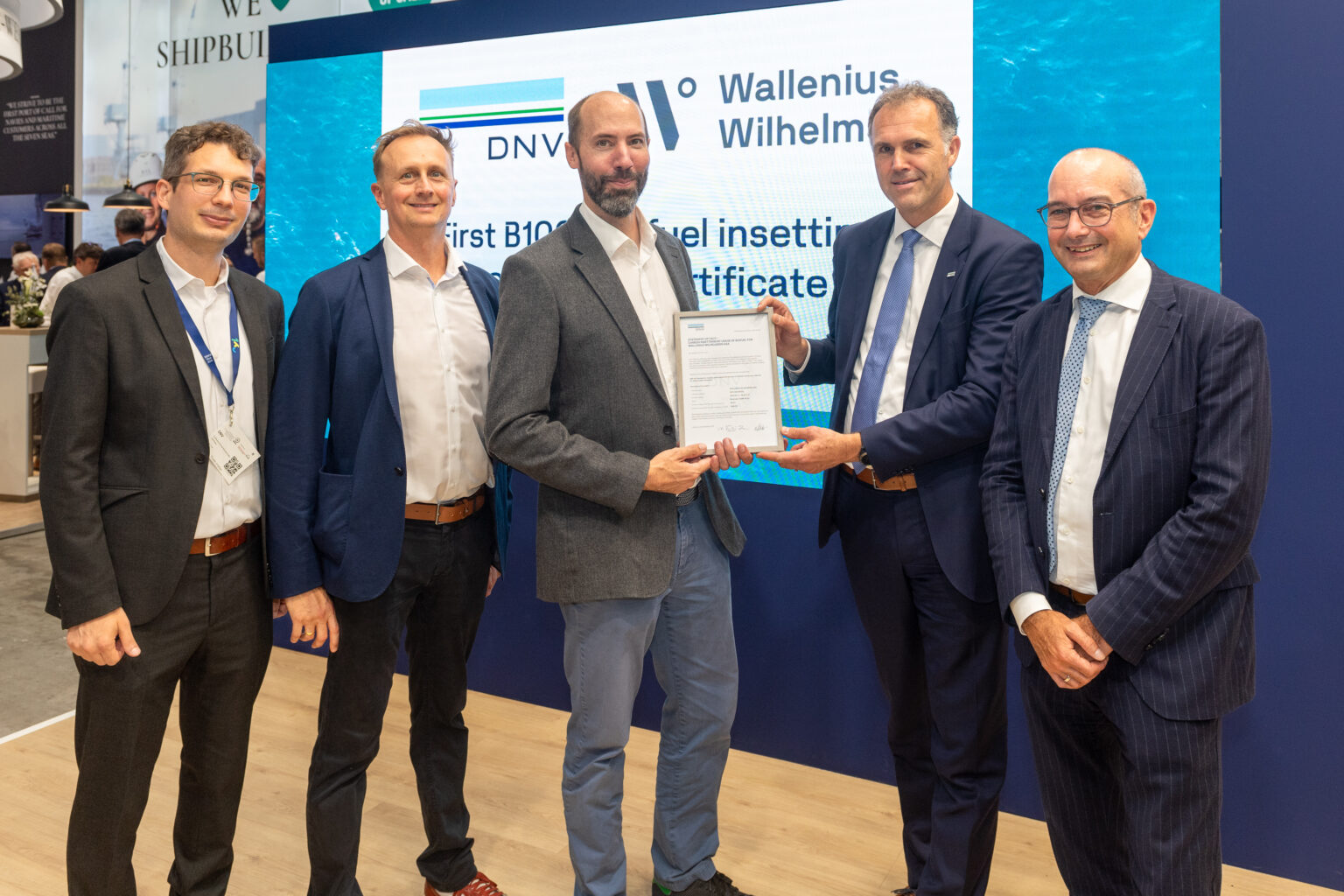Overdoing it, and cashing in
Over-compliance with FuelEU Maritime through biofuel use “could generate surpluses”

Maritime data and technology firm OceanScore says it has identified tangible savings on the cost of compliance with FuelEU Maritime that can be made through burning biofuels to generate surpluses for vessel pooling and through financial gains from over compliance with carbon intensity reduction targets.
“While many shipping companies are struggling to get to grips with the complexities of this new regulation, it also presents significant commercial and revenue opportunities for those that understand FuelEU and are taking a proactive approach to adoption of alternative fuels,” says the company’s managing director Albrecht Grell.
He states it is natural for the industry to take a defensive stance towards the regulation, with many players focused on technical aspects such as finalising monitoring plans, data provision and verification, while seeking clarity on charter parties and Bimco’s Shipman clauses as they relate to FuelEU.
According to Grell the issue is compounded by the tight time-frame ahead of implementation on 1 January 2025 and the fact it is being introduced when shipping is still trying to gain control of the EU ETS, amid ongoing operational challenges due to geopolitical developments.
Grell says FuelEU “can understandably be seen as annoyingly complex and just another cost burden for shipping”, with players facing a hefty penalty of €2400 per tonne of VLSFOe for compliance deficits and the prospect of increasing costs if no action is taken as intensity reduction targets are tightened towards 2050.
However, he also highlights business opportunities arising from the concept of surpluses and deficits under the FuelEU pooling mechanism whereby over compliance for vessels using alternative fuels can be used to offset compliance deficits of other units running on conventional fuels to create a neutral compliance balance – both for internal fleets and with vessels from third parties.
Explaining the two key drivers for these opportunities, Grell says: “Generating compliance surpluses through burning the right biofuels will be much cheaper than paying penalties. And if sufficient compliance surpluses are generated, these can be ‘sold’ via FuelEU pooling arrangements with others.”
OceanScore has calculated the net value of surpluses generated by replacing for example HFO with rapeseed-based biofuel will be around €440 per tonne of HFO replaced, taking into account the different bunker prices and calorific values of these fuels, as well as FuelEU penalties and EU ETS costs.
And this benefit could increase to up to around €1250 per tonne of HFO replaced with the use of bunkers based on waste cooking oil, which have an especially low carbon intensity in the context of FuelEU.
The surpluses generated by each of these alternative fuels will vary according to their different well-to-wake CO2e emissions, including the climate effect of methane and nitroxide. Rapeseed-based biofuels have a default carbon intensity of 51.584g of CO2e per megajoule (MJ) of energy, giving a solid surplus versus the initial FuelEU hurdle rate of 89.3g CO2e/MJ, while waste cooking oil-based fuels come in at only 16.384g CO2e/MJ, basically doubling the positive effect on compliance balances.
“Given comparable low calorific values and bunker prices, the need to carefully select bunkers based on the feedstock used becomes apparent,” Grell says.
Biofuel insetting
DNV awarded shipping and logistics company Wallenius Wilhelmsen its first biofuel insetting verification statement following the company’s use of 100% biofuel (B100) in a recent voyage.
According to DNV, biofuels can help to make an immediate impact on shipping’s GHG emissions. However, they do come at an increased cost and owners need to be sure that they can benefit from their extra investments in sustainability and compliance. Verified biofuel insetting enables this, by creating transparency in a “book and claim system” across the entire supply chain.
DNV has worked with Wallenius Wilhelmsen to verify the GHG reductions it has achieved by using B100 on the vehicle carrier Morning Post. Bunkering B100, “derived entirely from sustainable sources”, at Port of Antwerp-Bruges, the vessel consumed the biofuel over its scheduled voyage, “resulting in a reduction of 90% CO2 equivalent on well-to-wake basis”.
This is DNV’s first commercial verification of Biofuel insetting with 100% biofuel (B100)
18/12/24
Image Caption: DNV Wallenius Wilhelmsen B100 verification
get
in touch

Constructive Media
Constructive Media
Hornbeam Suite
Mamhilad House
Mamhilad Park Estate
Pontypool
NP4 0HZ
Tel: 01495 239 962
Email: ibia@constructivemedia.co.uk

On behalf of:
IBIA London Office
Suite Lu.231
The Light Bulb
1 Filament Walk, Wandsworth
London, SW18 4GQ
United Kingdom
Tel: +44 (0) 20 3397 3850
Fax: +44 (0) 20 3397 3865
Email: ibia@ibia.net
Website: www.ibia.net

Emails
Publisher & Designer: Constructive Media
ibia@constructivemedia.co.uk
Editor: David Hughes
anderimar.news@googlemail.com
Project Manager: Alex Corboude
alex@worldbunkering.net
